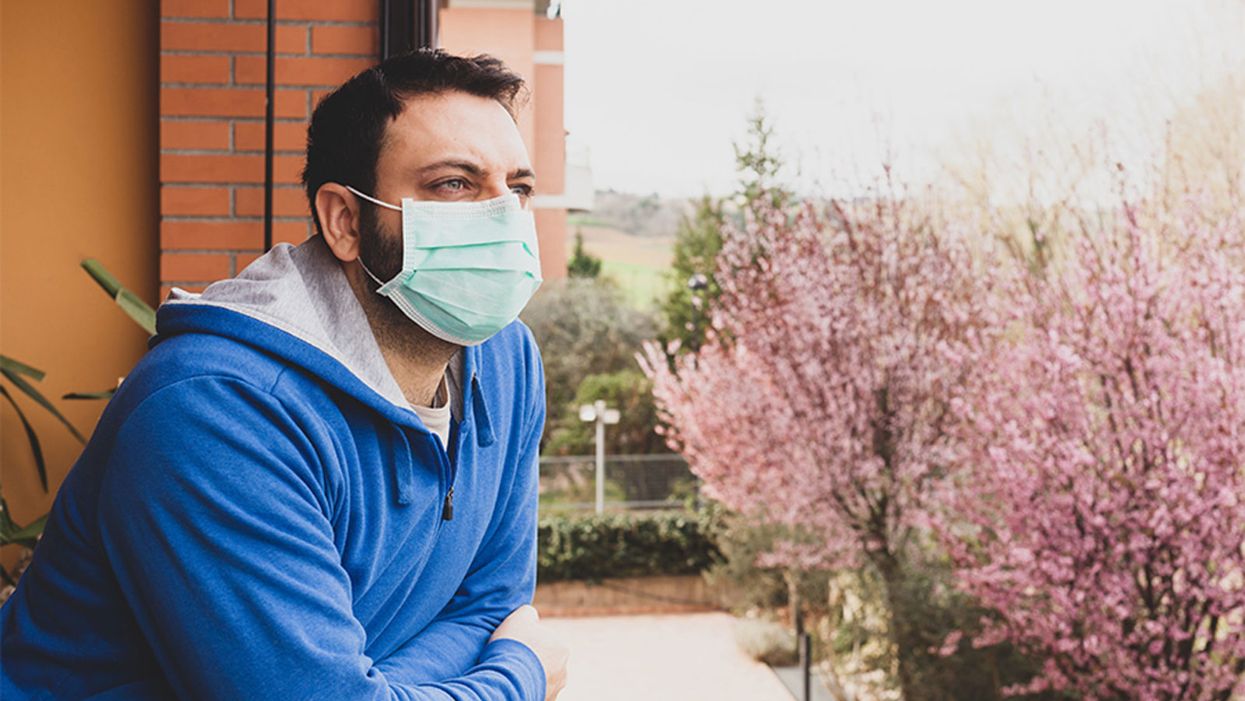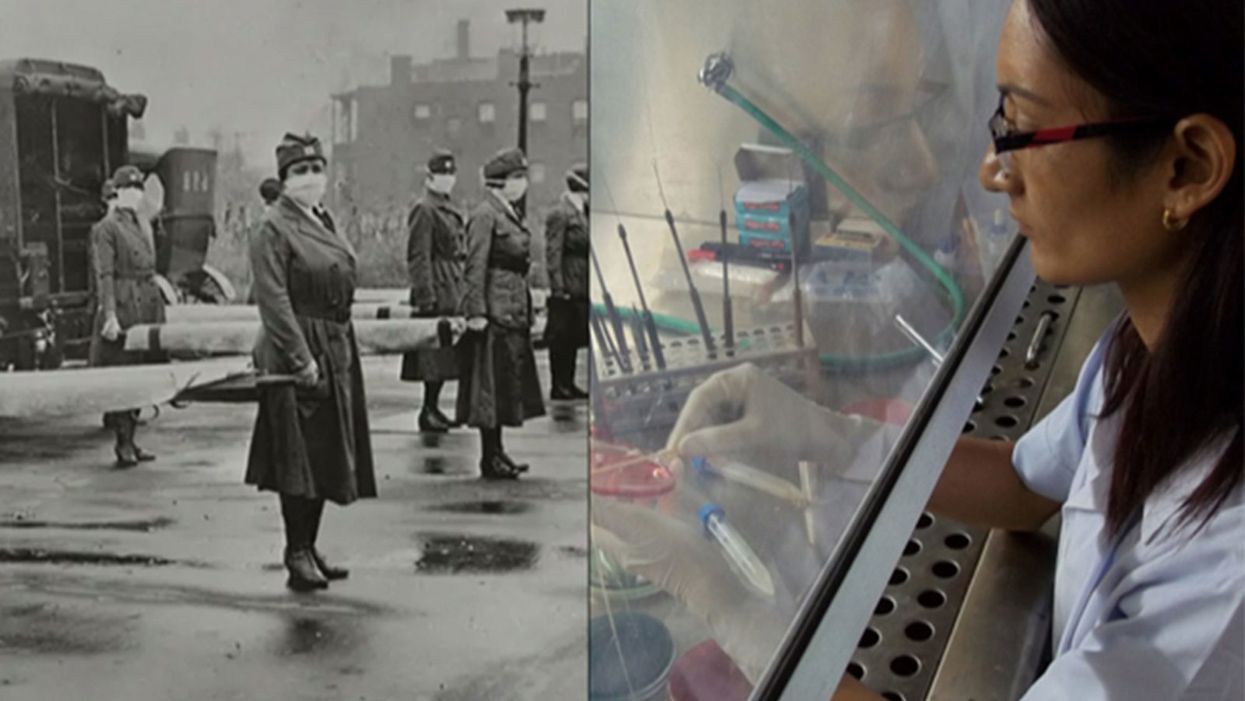Dec. 17th Event: The Latest on Omicron, Boosters, and Immunity
Kira Peikoff was the editor-in-chief of Leaps.org from 2017 to 2021. As a journalist, her work has appeared in The New York Times, Newsweek, Nautilus, Popular Mechanics, The New York Academy of Sciences, and other outlets. She is also the author of four suspense novels that explore controversial issues arising from scientific innovation: Living Proof, No Time to Die, Die Again Tomorrow, and Mother Knows Best. Peikoff holds a B.A. in Journalism from New York University and an M.S. in Bioethics from Columbia University. She lives in New Jersey with her husband and two young sons. Follow her on Twitter @KiraPeikoff.
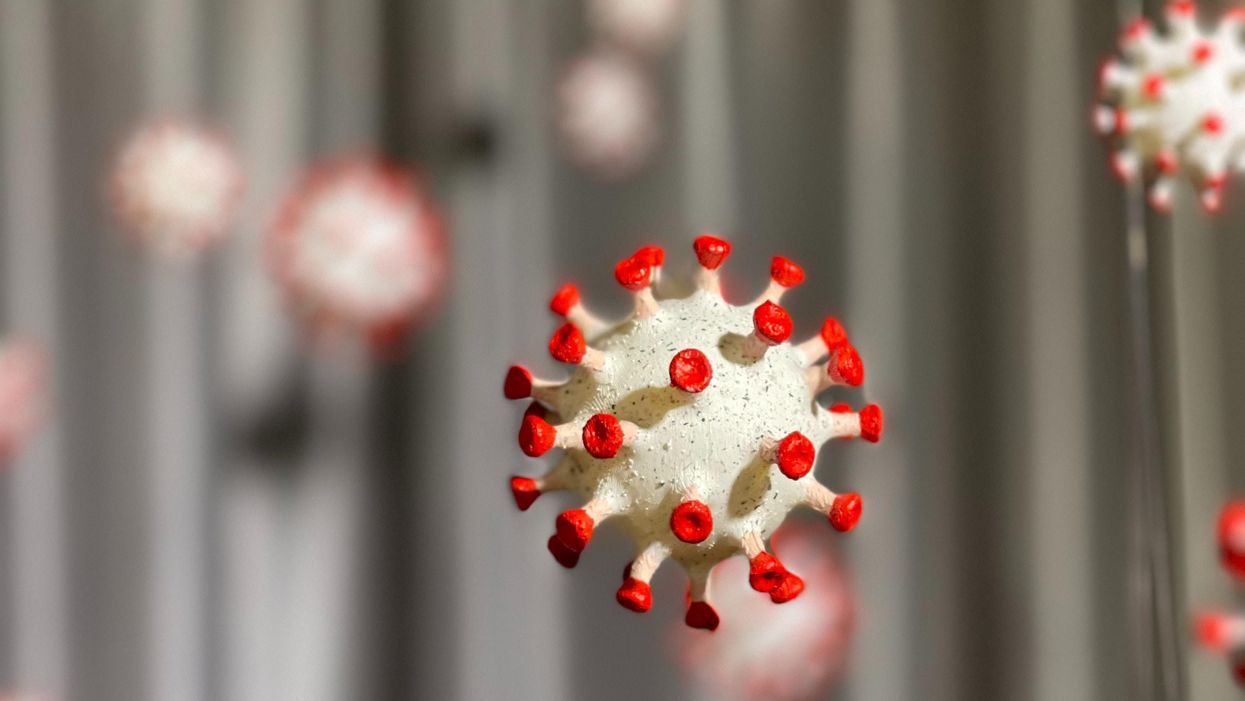
The Omicron variant poses new uncertainty for the vaccines, which four leading experts will address during our virtual event on December 17th, 2021.
This virtual event will convene leading scientific and medical experts to discuss the most pressing questions around the new Omicron variant, including what we know so far about its ability to evade COVID-19 vaccines, the role of boosters in eliciting heightened immunity, and the science behind variants and vaccines. A public Q&A will follow the expert discussion.
EVENT INFORMATION:
Date: Friday Dec 17, 2021
2:00pm - 3:30pm EST

Dr. Céline Gounder, MD, ScM, is the CEO/President/Founder of Just Human Productions, a non-profit multimedia organization. She is also the host and producer of American Diagnosis, a podcast on health and social justice, and Epidemic, a podcast about infectious disease epidemics and pandemics. She served on the Biden-Harris Transition COVID-19 Advisory Board.
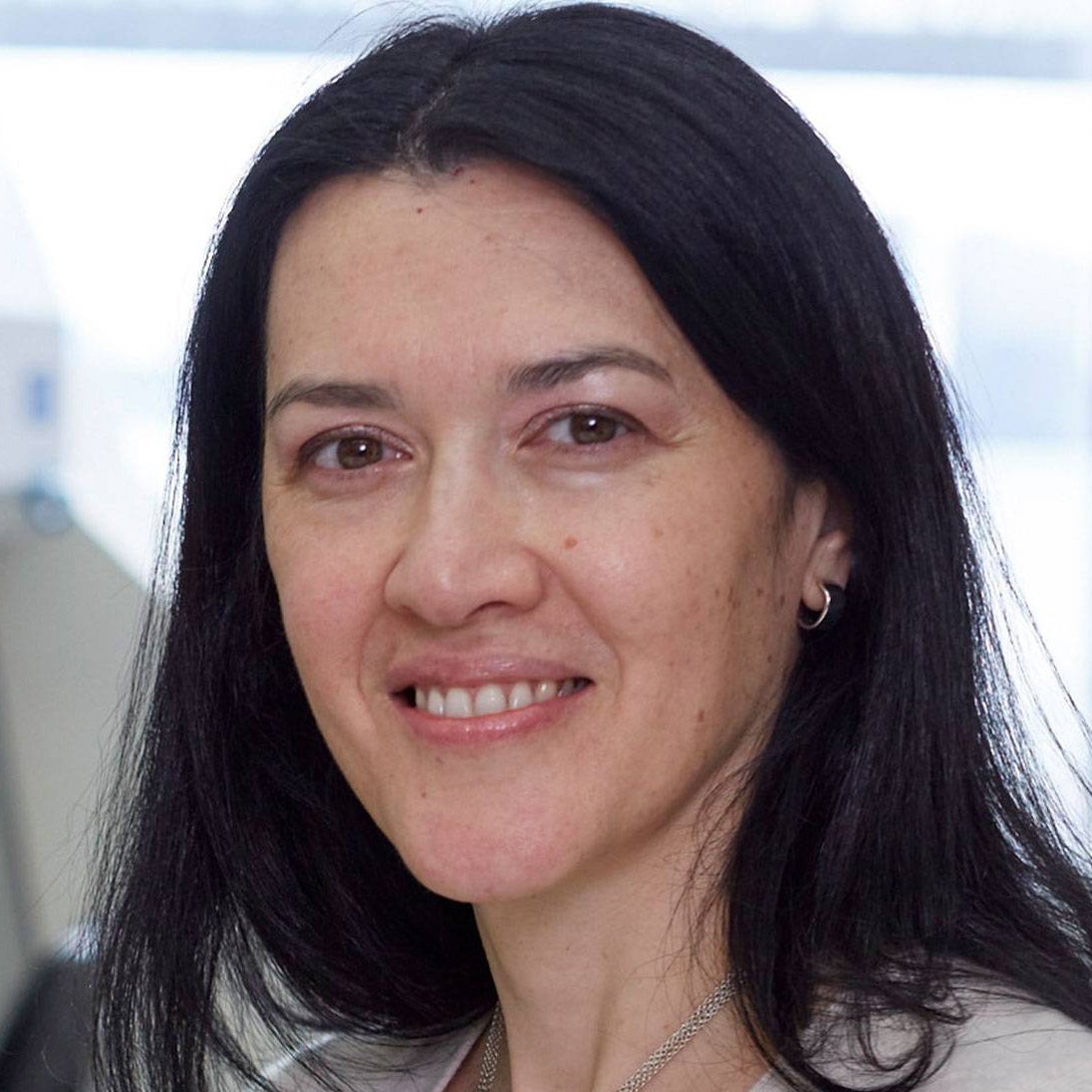 Dr. Theodora Hatziioannou, Ph.D., is a Research Associate Professor in the Laboratory of Retrovirology at The Rockefeller University. Her research includes identifying plasma samples from recovered COVID-19 patients that contain antibodies capable of neutralizing the SARS-CoV-2 coronavirus.
Dr. Theodora Hatziioannou, Ph.D., is a Research Associate Professor in the Laboratory of Retrovirology at The Rockefeller University. Her research includes identifying plasma samples from recovered COVID-19 patients that contain antibodies capable of neutralizing the SARS-CoV-2 coronavirus.
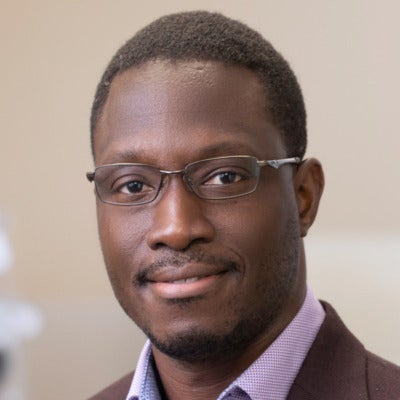
Dr. Onyema Ogbuagu, MBBCh, is an Associate Professor at Yale School of Medicine and an infectious disease specialist who treats COVID-19 patients and leads Yale’s clinical studies around COVID-19. He ran Yale’s trial of the Pfizer/BioNTech vaccine.
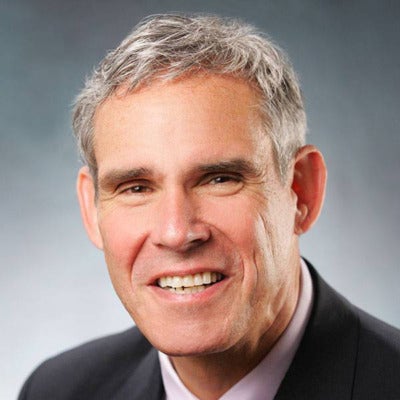
Dr. Eric Topol, M.D., is a cardiologist, scientist, professor of molecular medicine, and the director and founder of Scripps Research Translational Institute. He has led clinical trials in over 40 countries with over 200,000 patients and pioneered the development of many routinely used medications.
This event is the fourth of a four-part series co-hosted by Leaps.org, the Aspen Institute Science & Society Program, and the Sabin–Aspen Vaccine Science & Policy Group, with generous support from the Gordon and Betty Moore Foundation and the Howard Hughes Medical Institute.
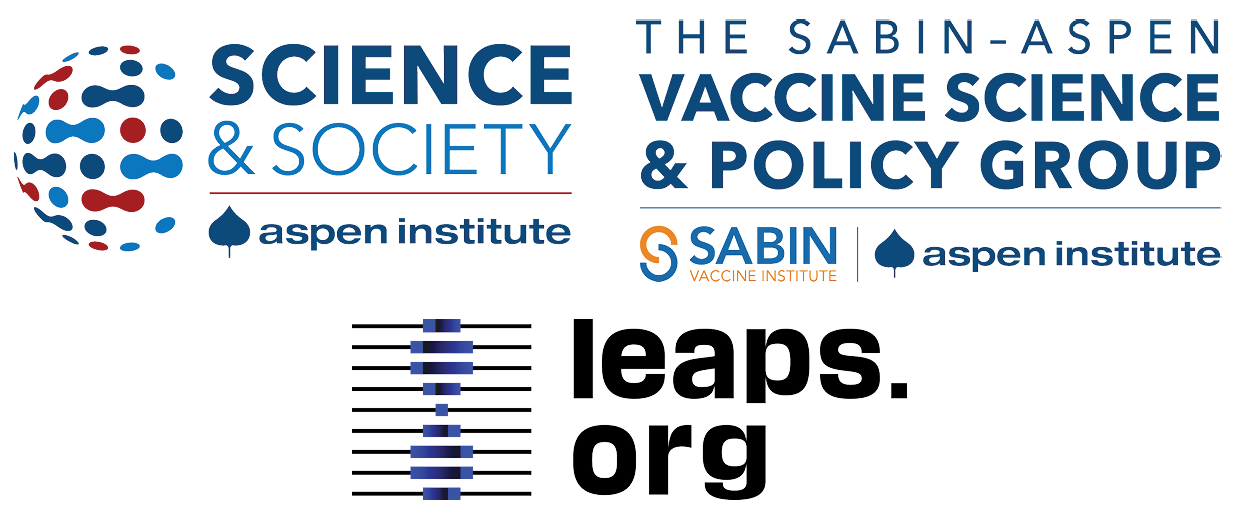
Kira Peikoff was the editor-in-chief of Leaps.org from 2017 to 2021. As a journalist, her work has appeared in The New York Times, Newsweek, Nautilus, Popular Mechanics, The New York Academy of Sciences, and other outlets. She is also the author of four suspense novels that explore controversial issues arising from scientific innovation: Living Proof, No Time to Die, Die Again Tomorrow, and Mother Knows Best. Peikoff holds a B.A. in Journalism from New York University and an M.S. in Bioethics from Columbia University. She lives in New Jersey with her husband and two young sons. Follow her on Twitter @KiraPeikoff.
Scientific breakthroughs offer our only solution for a safe return to normal life.
Kira Peikoff was the editor-in-chief of Leaps.org from 2017 to 2021. As a journalist, her work has appeared in The New York Times, Newsweek, Nautilus, Popular Mechanics, The New York Academy of Sciences, and other outlets. She is also the author of four suspense novels that explore controversial issues arising from scientific innovation: Living Proof, No Time to Die, Die Again Tomorrow, and Mother Knows Best. Peikoff holds a B.A. in Journalism from New York University and an M.S. in Bioethics from Columbia University. She lives in New Jersey with her husband and two young sons. Follow her on Twitter @KiraPeikoff.
A historical perspective offers insights about how far we have come since the 1918 Spanish flu, and how far we have yet to go.
With a deadly pandemic sweeping the planet, many are questioning the comfort and security we have taken for granted in the modern world.
A century ago, when an influenza pandemic struck, we barely knew what viruses were.
More than a century after the germ theory, we are still at the mercy of a microbe we can neither treat, nor control, nor immunize against. Even more discouraging is that technology has in some ways exacerbated the problem: cars and air travel allow a new disease to quickly encompass the globe.
Some say we have grown complacent, that we falsely assume the triumphs of the past ensure a happy and prosperous future, that we are oblivious to the possibility of unpredictable "black swan" events that could cause our destruction. Some have begun to lose confidence in progress itself, and despair of the future.
But the new coronavirus should not defeat our spirit—if anything, it should spur us to redouble our efforts, both in the science and technology of medicine, and more broadly in the advance of industry. Because the best way to protect ourselves against future disasters is more progress, faster.
Science and technology have overall made us much better able to deal with disease. In the developed world, we have already tamed most categories of infectious disease. Most bacterial infections, such as tuberculosis or bacterial pneumonia, are cured with antibiotics. Waterborne diseases such as cholera are eliminated through sanitation; insect-borne ones such as malaria through pest control. Those that are not contagious until symptoms appear, such as SARS, can be handled through case isolation and contact tracing. For the rest, such as smallpox, polio, and measles, we develop vaccines, given enough time. COVID-19 could start a pandemic only because it fits a narrow category: a new, viral disease that is highly contagious via pre-symptomatic droplet/aerosol transmission, and that has a high mortality rate compared to seasonal influenza.
A century ago, when an influenza pandemic struck, we barely knew what viruses were; no one had ever seen one. Today we know what COVID-19 is down to its exact genome; in fact, we have sequenced thousands of COVID-19 genomes, and can track its history and its spread through their mutations. We can create vaccines faster today, too: where we once developed them in live animals, we now use cell cultures; where we once had to weaken or inactivate the virus itself, we can now produce vaccines based on the virus's proteins. And even though we don't yet have a treatment, the last century-plus of pharmaceutical research has given us a vast catalog of candidate drugs, already proven safe. Even now, over 50 candidate vaccines and almost 100 candidate treatments are in the research pipeline.
It's not just our knowledge that has advanced, but our methods. When smallpox raged in the 1700s, even the idea of calculating a case-fatality rate was an innovation. When the polio vaccine was trialled in the 1950s, the use of placebo-controlled trials was still controversial. The crucial measure of contagiousness, "R0", was not developed in epidemiology until the 1980s. And today, all of these methods are made orders of magnitude faster and more powerful by statistical and data visualization software.
If you're seeking to avoid COVID-19, the hand sanitizer gel you carry in a pocket or purse did not exist until the 1960s. If you start to show symptoms, the pulse oximeter that tests your blood oxygenation was not developed until the 1970s. If your case worsens, the mechanical ventilator that keeps you alive was invented in the 1950s—in fact, no form of artificial respiration was widely available until the "iron lung" used to treat polio patients in the 1930s. Even the modern emergency medical system did not exist until recently: if during the 1918 flu pandemic you became seriously ill, there was no 911 hotline to call, and any ambulance that showed up would likely have been a modified van or hearse, with no equipment or trained staff.
As many of us "shelter in place", we are far more able to communicate and collaborate, to maintain some semblance of normal life, than we ever would have been. To compare again to 1918: long-distance telephone service barely existed at that time, and only about a third of homes in the US even had electricity; now we can videoconference over Zoom and Skype. And the enormous selection and availability provided by online retail and food delivery have kept us stocked and fed, even when we don't want to venture out to the store.
Let the virus push us to redouble our efforts to make scientific, technological, and industrial progress on all fronts.
"Black swan" calamities can strike without warning at any time. Indeed, humanity has always been subject to them—drought and frost, fire and flood, war and plague. But we are better equipped now to deal with them than ever before. And the more progress we make, the better prepared we'll be for the next one. The accumulation of knowledge, technology, industrial infrastructure, and surplus wealth is the best buffer against any shock—whether a viral pandemic, a nuclear war, or an asteroid impact. In fact, the more worried we are about future crises, the more energetically we should accelerate science, technology and industry.
In this sense, we have grown complacent. We take the modern world for granted, so much so that some question whether further progress is even still needed. The new virus proves how much we do need it, and how far we still have to go. Imagine how different things would be if we had broad-spectrum antiviral drugs, or a way to enhance the immune system to react faster to infection, or a way to detect infection even before symptoms appear. These technologies may seem to belong to a Star Trek future—but so, at one time, did cell phones.
The virus reminds us that nature is indifferent to us, leaving us to fend entirely for ourselves. As we go to war against it, let us not take the need for such a war as reason for despair. Instead, let it push us to redouble our efforts to make scientific, technological, and industrial progress on all fronts. No matter the odds, applied intelligence is our best weapon against disaster.
